Try the new IKO website at https://beta.ikointl.com/
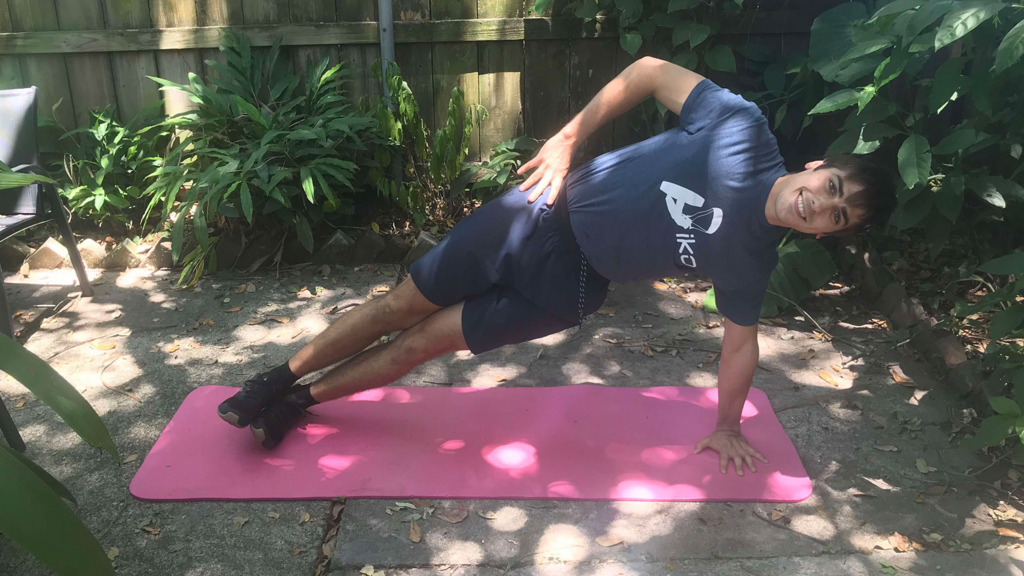
How kiters can stay fit during lockdown
How Kiters Can Get Fit for the Upcoming Kite Season
As some locations begin to lift lockdowns put in place due to COVID-19, everyone is frothing to get out on the water! To get ready to get back on the board, you’ll want to prepare your body for the upcoming kite season. I’m a kitesurf instructor and last winter, I started training as a CrossFit coach, because kiting and fitness go hand in hand. As beaches are reopening in some locations, my recommendation is to get in good kiting shape to help prevent injuries and improve your performance while on the water! In this article, I’ll share some of the best at-home exercises you can do to improve your kitesurfing.
No gym? No problem! Learn to Train at Home.
Gyms are still closed in some areas so this blog will focus on bodyweight exercises that you can do at home. One great thing about bodyweight training is that you only need is an area the size of a beach towel. Bodyweight exercises do not require any equipment; however, you can also get creative and use household items for this purpose. A one-gallon water jug equals eight pounds, a brick is five, a can of soup is one; all work in lieu of free weights. I also highly recommend taking a kite bag, filling it with weights, and wearing it while doing bodyweight work. Wrap your items in a towel and add some pillows inside so the bag they don’t bounce around.
Core Exercises for Kiters
If you only have 5 minutes a day to work on kiteboarding fitness, then do some core work. Core strength is the foundation for balance and style in all disciplines of the sport! You can get started with these five exercises, and all you need is a towel or yoga mat.
-
Side Plank: 3-5 sets of 30 seconds per side.
Face sideways, and put one elbow on the ground, with that forearm perpendicular to the body. Stack your feet and rest your top hand on your hip. Hold the body strong by engaging the hips up to the sky. This one is great for the obliques, your side abdominal muscles, which helps to reduce harness soreness.
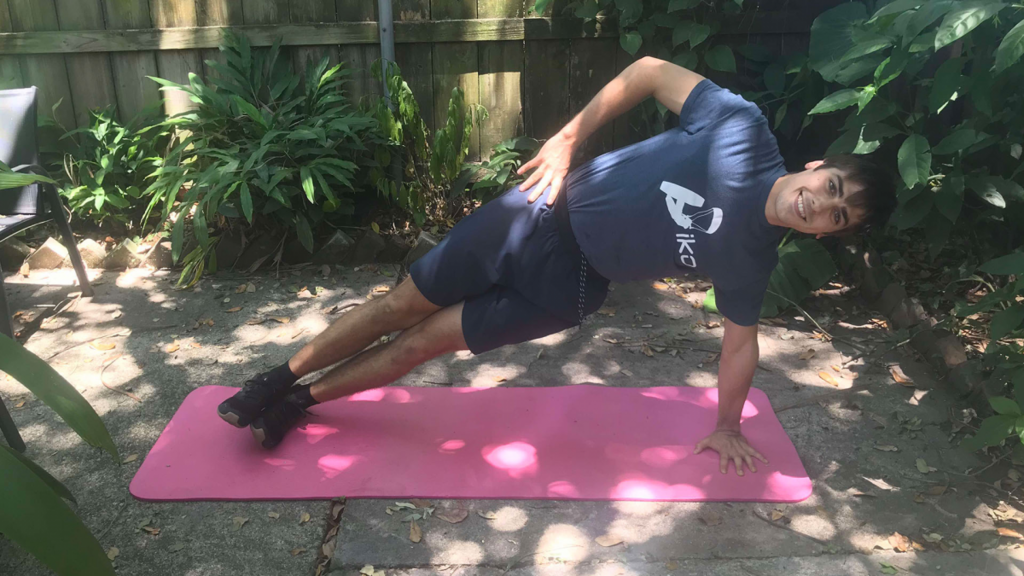
-
Plank: 3-5 sets of 30 seconds.
Index fingers pointed forward, thumbs pointed at each other, hands underneath shoulders, push actively into the ground. Engage the lower body: tuck the butt down, keep glutes, quads, and calves tight. You can do it from the knees as an easier variant, or increase the time as you build strength. This works the multifidus, a small muscle that stabilizes your back and spine.
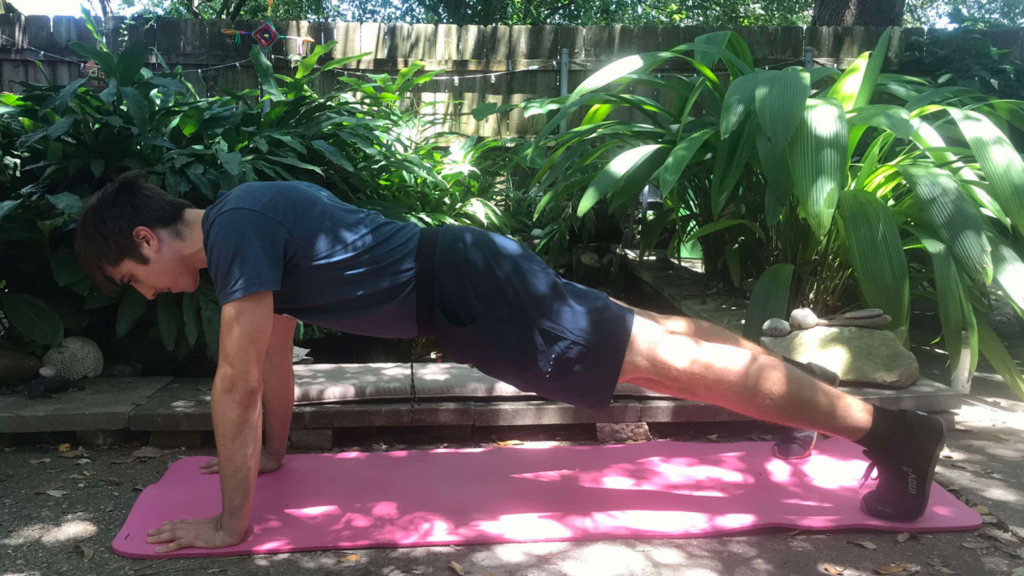
-
Mountain Climbers: 3-5 sets of 20 reps (1 rep= L+R).
From a plank position, alternate bringing each knee to the same side elbow, and repeat for the desired amount of reps. This hits your oblique muscles and will get your heart rate up quickly if done with higher intensity. Exercises like this are good for building strength in a quick workout.
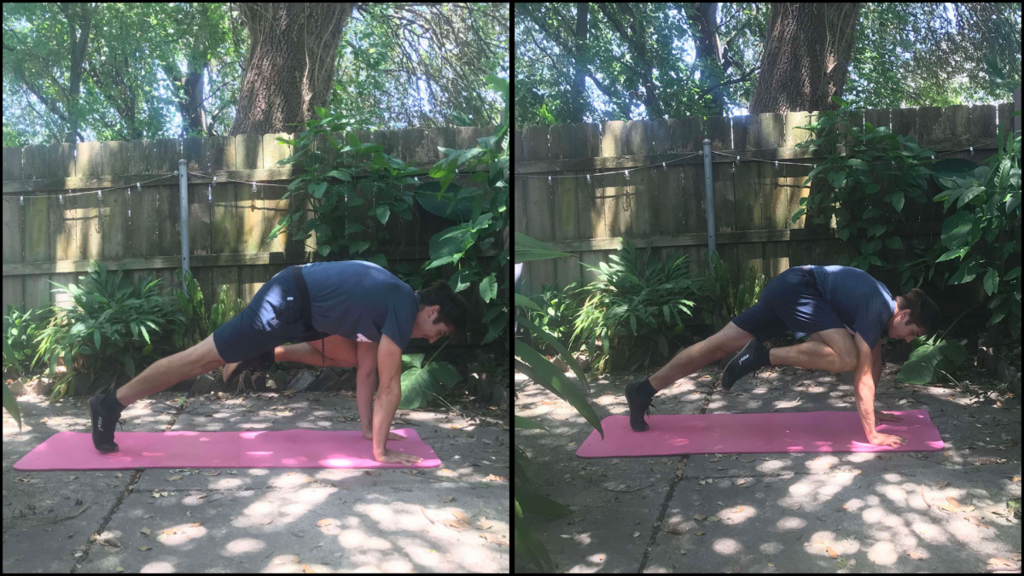
-
Bicycle Crunches: 3-5 sets of 20 reps. (1 rep= L+R)
Lie on your back with your hands touching the back of your head, legs held out straight and alternate touching each elbow to opposite knee. Increase or decrease reps as needed. This will work your side abs as well as your Transversus Abdominis, one of your deep core muscles which assist with balance and stability.
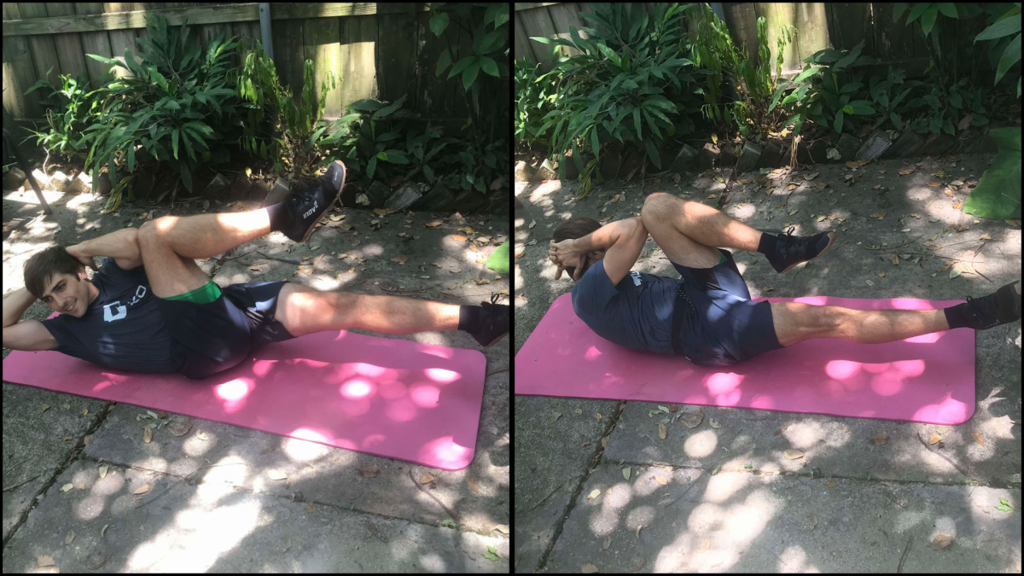
Lower Body Exercises for Kiters
Leg strength is great for extending your sessions and not feeling so sore the next day. You use your legs at all times during riding, even if you aren’t always thinking about it. These muscles are also critical for protecting your knee joints from long-term overuse injuries. Also, remember you can add the weighted kite bag to any of these to increase the intensity.
-
Air squats: 3-5 sets of 20 reps.
With feet hip-width apart, sit your butt down, keeping your core engaged, and without letting your knees go too far forward beyond your toes. Dip to a squatting position with hands up near the shoulders, and then stand up completely, locking out the hips at the top. This one hits your glutes, quads, and even core muscles which helps you build explosiveness and pop.
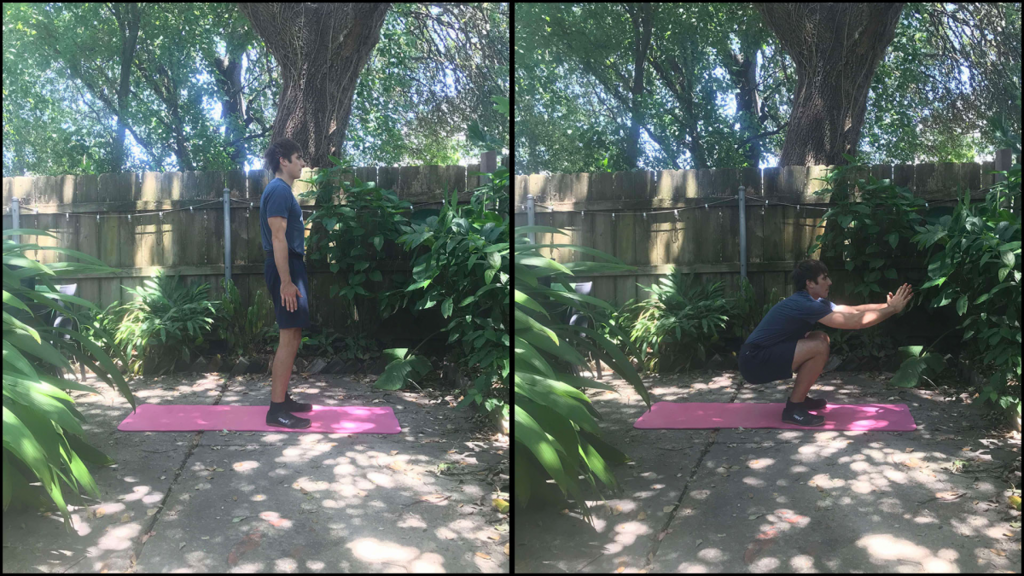
-
Alternating Lunges: 3-5 sets of 20 reps.
Start with feet hip-width apart and take a big step forward (or backward) with one leg. Lower down until the back knee is almost touching the ground, while keeping your forward knee behind the front foot. This is a great exercise for your quad and calf muscles, which you use when absorbing chop on the water.
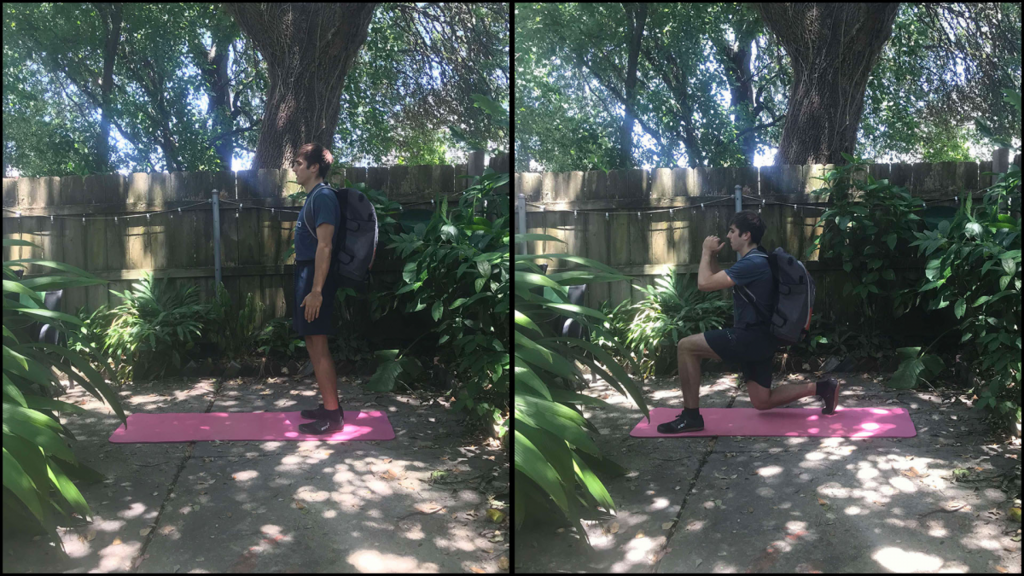
-
Glute bridges: 3-5 sets of 12 reps.
Lie on your back with your feet tucked close to your butt. Push your hips up to the sky while keeping your shoulder blades grounded, hold for 2-3 seconds at the top, and then return to the starting position. Keep the hips even for the whole range of motion. This one is good for the hamstrings, which help you edge upwind. Move on to single-leg glute bridges for an added challenge.
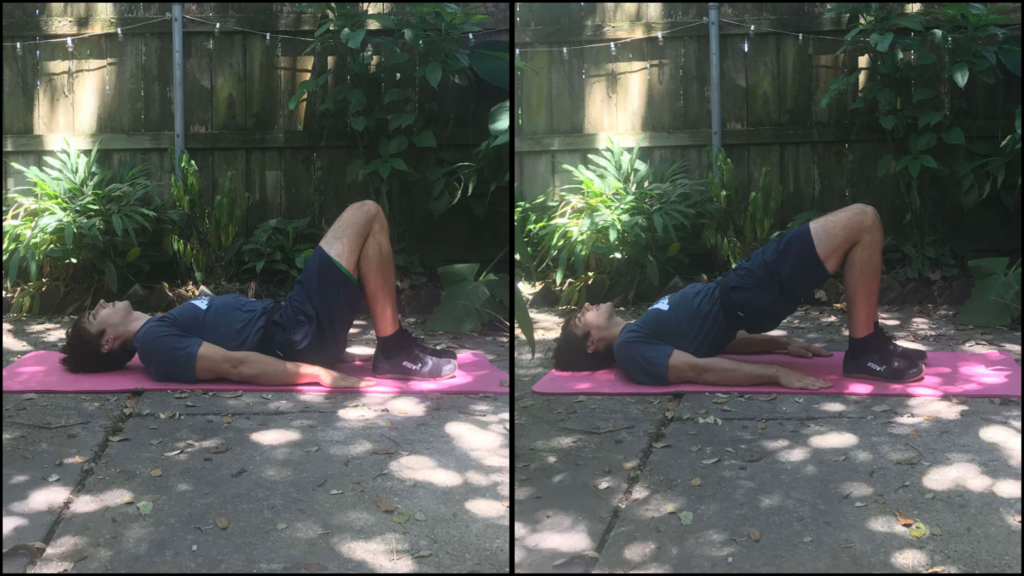
Upper Body Exercises for Kiters
Upper body strength is important for controlling the kite, as you need to have good forearm and upper back muscles. As an added bonus, most of these upper body exercises also hit the core, so you get the benefits of working both at once. Scale the recommended number of reps to your current fitness level as needed.
-
Push-Ups: 5 sets of 6-10 reps.
From a plank position, lower your body to the ground keeping the elbows close to the side of the chest, and then return to full extension. Keep your core tight with the butt tucked down. Increase or decrease volume as needed. For an easier variation, you also start with knee pushups or incline pushups (with your hands on a bench, for example). Pushups are great for the chest and bicep muscles, used for steering the control bar.
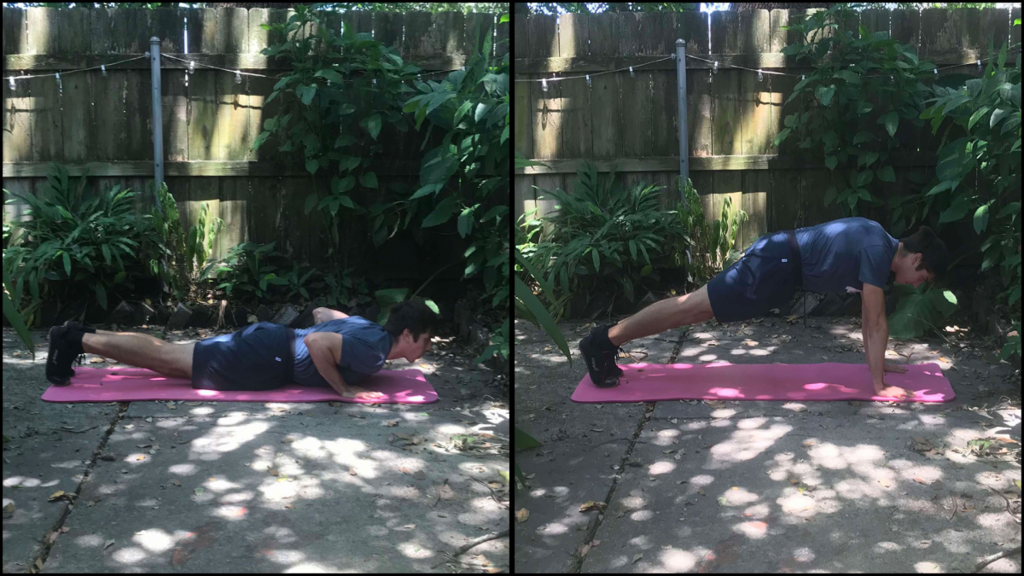
-
Handstand Walks: 3 sets of 1 rep.
Start in a plank position with your feet against a wall. Walk your feet up the wall, keeping the hollow body position, and while pushing out with your shoulders, until your face is near the wall, or until you are at your max for your current level. This will work your core and shoulder muscles, which helps you to ride in a relaxed position even when powered up.
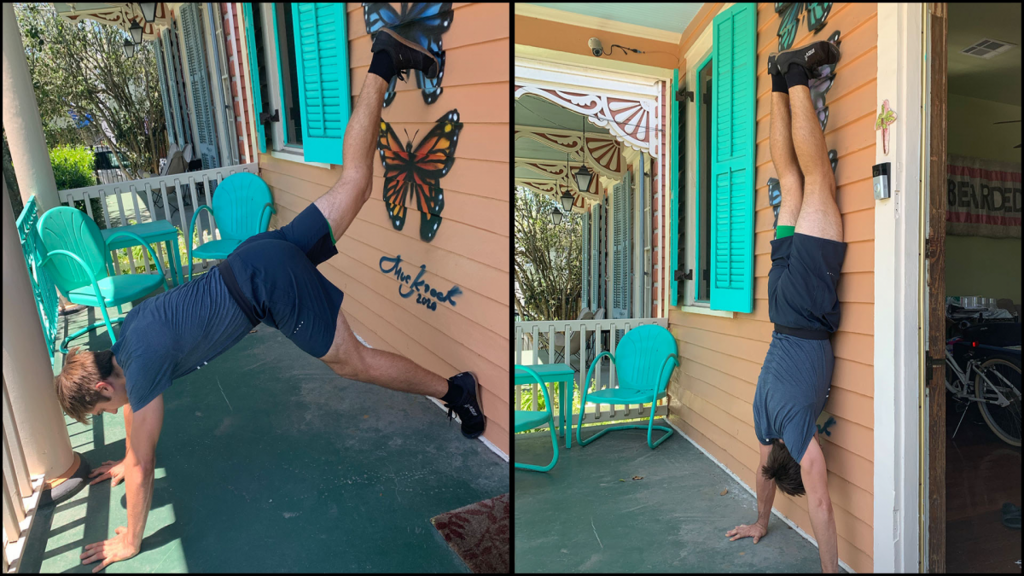
-
Pull-ups: 3-5 sets at 75% effort (reps vary for each person).
In my opinion, that $30 pull up bar on amazon qualifies as an essential piece of kite gear. Start hanging with full extension, and pull your chin above the bar level. Keep the core engaged and avoid kicking your legs. Pull-ups work your biceps and back muscles, as well as your grip strength, and core. They will especially help you if you are riding for unhooked.
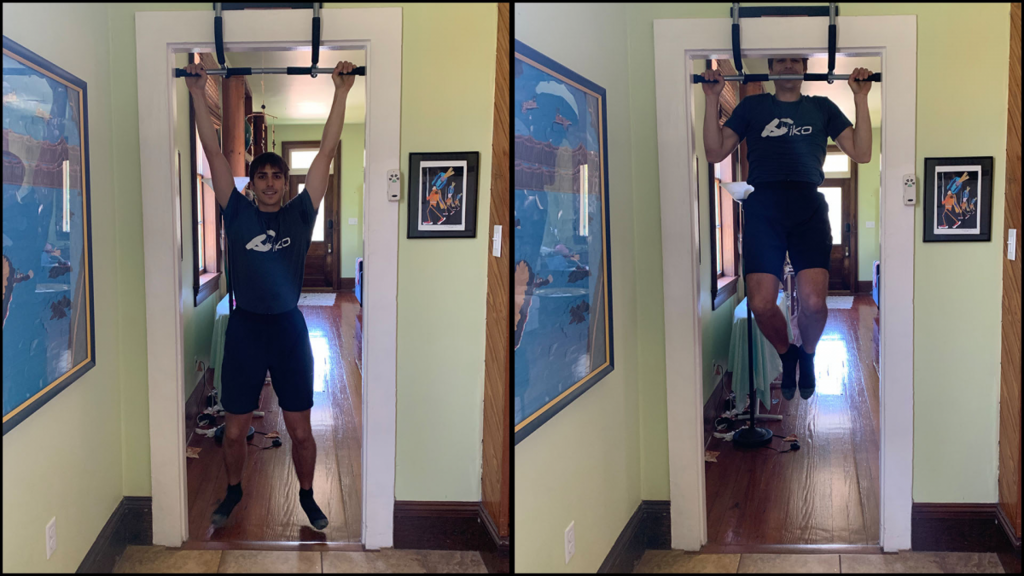
I hope these exercises help you get fit as you get back on the water. And for more information on kite-related fitness, check out IKO’s Kiter Premium Membership for access to exclusive content!
Author & Pictures: Daniel Plautz
.png)

